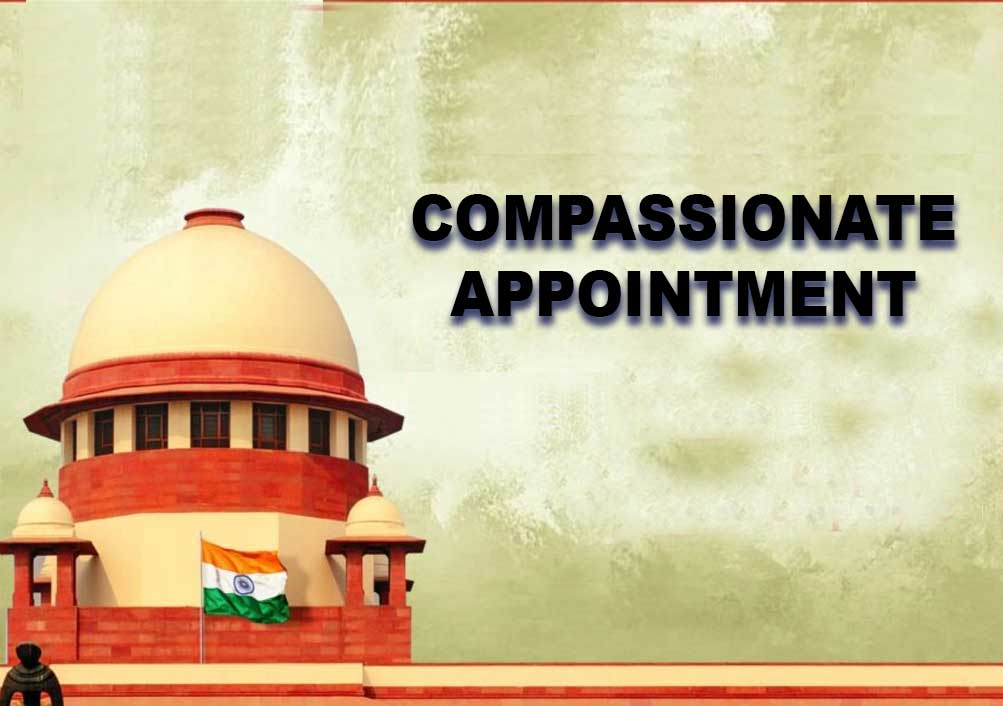In C.A. Nos. 8842-8855 of 2022-SC- Govt officials are to act with sense of utmost proactiveness and immediacy while deciding claims of compassionate appointment so as to ensure that wholesome object of such scheme is fulfilled: SC
Justices Krishna Murari & B.V. Nagarathna [03-03-2023]

Read Judgment: THE STATE OF WEST BENGAL v. DEBABRATA TIWARI & ORS. ETC
Tulip Kanth
New Delhi, March 6, 2023: The sine qua non for entertaining a claim for compassionate appointment is that the family of the deceased employee would be unable to make two ends meet without one of the dependants of the deceased employee being employed on compassionate grounds, the Supreme Court has held.
Referring to its judgments in Sushma Gosain vs. Union of India, Umesh Kumar Nagpal vs. State of Haryana, Haryana State Electricity Board vs. Hakim Singh, State of Haryana vs. Ankur Gupta, State of Jammu and Kashmir vs. Sajad Ahmed Mir, the Division Bench of Justice Krishna Murari and Justice B.V. Nagarathna said, “...compassionate appointment should be provided immediately to redeem the family in distress. It is improper to keep such a case pending for years.”
The appeals concerned the claims of the Respondents-Writ Petitioners, who are heirs of employees of Burdwan, Ranaghat and Habra Municipalities, who died in harness for compassionate appointment to posts in the concerned municipalities. Since the case of all the Respondents is the same, the facts concerning the Burdwan Municipality was taken into consideration.
Based on the applications received from the heirs of the deceased employees working under different categories, the Burdwan Municipality directed an enquiry by a three-member committee comprising of the Chairman of Burdwan Municipality, the Executive Officer and the Deputy Director of Local Bodies, Burdwan Division (Respondents) to determine whether the respondents were entitled to the appointment on compassionate grounds.
The Board of Councillors approved a list of 62 eligible candidates for the purpose of recruitment in Group C and D posts in the said Municipality. The names of the Writ Petitioners appeared in the list of eligible candidates under Group C under the exempted category, dependents of persons who died in harness.
Since the Director of Local Bodies or the Government of West Bengal did not take steps pursuant to the receipt of the list of candidates, Debabrata Tiwari (first Respondent) filed a Writ Petition seeking appointment on compassionate grounds under the relevant exempted category.
A direction was passed to the Director of Local Bodies, Government of West Bengal to take a decision on the recommendation of the Chairman of the Municipality and the Director observed that as soon as the State Government extends such policy for consideration of appointment of the employees of the Urban Local Bodies, under compassionate grounds, in the die-in-harness category, the prayer of the first Respondent ould bew considered.
When the similarly placed respondents filed a petition, the High Court held that no relief could be granted to the Writ Petitioners (Respondents herein), in the absence of a sanctioned scheme for compassionate appointment in respect of municipal employees.When the matter reached the Division Bench, the High Court directed the Auhtorities to consider the application made by the Writ Petitioners. Hence the present appeals were filed by the State of West Bengal.
Noting that it would be of no avail to grant compassionate appointment to the dependants of the deceased employee, after the crisis which arose on account of death of a bread-winner, has been overcome, the Bench opined that there is also a compelling need to act with a sense of immediacy in matters concerning compassionate appointment because on failure to do so, the object of the scheme of compassionate would be frustrated.
Since compassionate appointment is not a vested right and the same is relative to the financial condition and hardship faced by the dependents of the deceased government employee as a consequence of his death, a claim for compassionate appointment may not be entertained after lapse of a considerable period of time since the death of the government employee, the Bench further added.
With regard to the Circulars that were presented, the Bench opined that Circular Nos. 301-Emp, 302-Emp and 303-Emp. couldnot be held to be applicable to local authorities. The Bench was unable to affirm the findings of the Division Bench of the High Court to the effect that given that Circular No. 301-Emp., 302-Emp. and 303 Emp. were not specifically withdrawn, they would continue to remain applicable and therefore, compassionate appointment in respect of municipalities would be governed by the scheme under Circular Nos. 301-Emp., 302- Emp. and 303-Emp.
The Bench was also of the view that the liberty granted to the local authorities in Circular No. 142-Emp. to formulate their own scheme for compassionate appointment, was an acknowledgement of the fact that there was no policy existing to govern compassionate appointment to posts under local authorities.
There was no policy existing to govern compassionate appointment to posts under local authorities in the State of West Bengal and hence, in the absence of such a policy, compassionate appointment cannot be granted and assuming that there was such a policy, it would be of no redeeming purpose to direct that the applications for appointment on compassionate grounds be considered and decided several years after they were filed, the Bench held while allowing the appeals.
Sign up for our weekly newsletter to stay up to date on our product, events featured blog, special offer and all of the exciting things that take place here at Legitquest.




Add a Comment